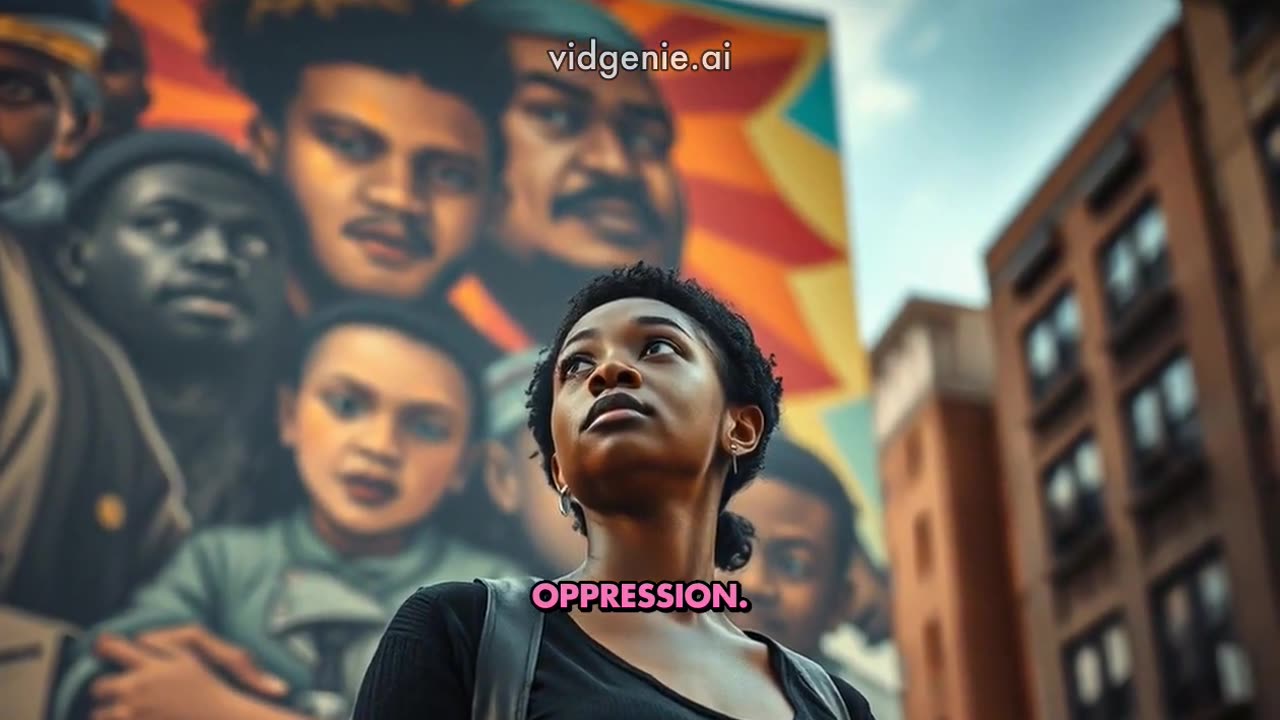Premium Only Content

Woke Culture: A Spiritual and Inner Perspective
Read full article here:
https://spiritualseek.online/blog/woke-culture-a-spiritual-and-inner-perspective/
------------------------
Excerpt from the original article
Origins of Woke Culture
The term “woke”, originally emerged from African American Vernacular English (AAVE), was used to describe a heightened awareness of social injustices, particularly those related to race. Its roots can be traced back to the civil rights movements of the 20th century, where activists sought to address systemic racism, inequality, and oppression. The noble intention behind this movement was to foster awareness and promote social justice, advocating for marginalized communities and striving for equality.
From a spiritual perspective, the origins of woke culture can be seen as an awakening—a call to consciousness about societal issues that have long been ignored. This awakening is often characterized by empathy, compassion, and a desire for collective healing. The initial goals were aligned with universal principles of justice and equity, reflecting a deep-seated human yearning for harmony and understanding among diverse groups.
Critique of Woke Culture’s Evolution
As the movement has progressed, however, it has faced criticism for certain practices that some argue contradict its foundational goals. Critics assert that some factions within woke culture have adopted exclusionary tactics that reflect the very discrimination they aim to eradicate. This critique can be analyzed through the concept of duality—an idea suggesting that opposing forces coexist within human experiences.
soul spiritual awakening test
Reverse Discrimination: One significant point raised by critics is the notion of “reverse discrimination”. This term refers to situations where individuals are judged based on identity markers such as race or gender rather than their actions or character. For instance, hiring practices that prioritize diversity over merit can lead to accusations of unfair treatment against those who do not fit specific demographic profiles. This approach may inadvertently reinforce divisions rather than bridge them.
Identity Politics: The focus on identity politics within woke culture can create an environment where dissenting opinions are met with hostility. Individuals who express views contrary to prevailing ideologies may face backlash or ostracism, leading to a climate of fear around open dialogue. Critics argue that this creates an “us versus them” mentality, which undermines the original goal of fostering understanding and inclusivity among diverse groups.
Exclusionary Practices: Some factions within woke culture have been accused of adopting exclusionary practices that mirror historical discrimination. For example, there are instances where individuals from majority groups are labeled as oppressors simply due to their identity without consideration for their individual beliefs or actions. This can alienate potential allies and create further polarization in societal discourse.
Impact on Discourse: The transformation of woke culture into a more exclusionary framework has implications for public discourse. Instead of encouraging constructive conversations about social justice issues, it may lead to defensive postures among those who feel targeted or marginalized by the movement’s rhetoric. This dynamic can stifle genuine engagement with complex social issues and hinder progress toward mutual understanding.
The Role of Social Media: The rise of social media platforms has amplified both the reach and intensity of woke culture’s critiques and defenses. Online spaces often facilitate echo chambers where like-minded individuals reinforce each other’s views while dismissing opposing perspectives outright. This phenomenon contributes to a fragmented public discourse characterized by heightened tensions rather than collaborative problem-solving.
The Herd Effect and Its Implications in Woke Culture
Understanding the Herd Effect
The herd effect, also known as herd behavior, is a psychological phenomenon where individuals in a group tend to conform to the attitudes, beliefs, or behaviors of the majority without engaging in critical thinking. This tendency can be observed across various social contexts and is particularly relevant in discussions surrounding contemporary social movements, including what is often referred to as “woke culture”.
-
 30:21
30:21
Friday Beers
1 hour agoOur Brutal Golf Challenge: Hot Wings Roulette
15 -
 LIVE
LIVE
Dr Disrespect
6 hours ago🔴LIVE - DR DISRESPECT - BATTLEFIELD 1 - FULL GAME
6,831 watching -
 LIVE
LIVE
Barry Cunningham
2 hours agoPRESIDENT TRUMP SPEECH AT MAKING HEALTH TECHNOLOGY GREAT AGAIN! EVENT AND MORE NEWS!
1,758 watching -
 LIVE
LIVE
The Officer Tatum
2 hours agoLIVE: Left CANCELS Their Own, All White Town, NYC Shooter Update + MORE | EP 146
500 watching -
 1:23:27
1:23:27
Redacted News
2 hours agoBREAKING! FBI DIRECTOR DROPS BOMBSHELL, REVEALS HIDDEN 'BURN BAGS' AND MISSING EPSTEIN FOOTAGE
113K76 -
 1:21:25
1:21:25
vivafrei
3 hours agoJoey Swoll CANCELS Himself! Oprah Closing Roads for Tsunami Evacuees? Canada Can't Find Criminals?
61K20 -
 1:47:35
1:47:35
Right Side Broadcasting Network
6 hours agoLIVE REPLAY: President Trump Delivers Remarks on Making Health Technology Great Again - 7/30/25
48.4K16 -
 38:23
38:23
Members Club
2 hours ago $0.11 earnedShooter Strikes NYC, WNBA Wig Meltdown, and Sweeney’s Jeans Go Viral - MC05
2.73K3 -
 33:41
33:41
The Finance Hub
4 hours ago $0.49 earnedBREAKING: NANCY PELOSI JUST GOT HIT WITH A MAJOR BOMBSHELL!!!
5.59K4 -
 LIVE
LIVE
LFA TV
21 hours agoLFA TV ALL DAY STREAM - WEDNESDAY 7/30/25
1,164 watching